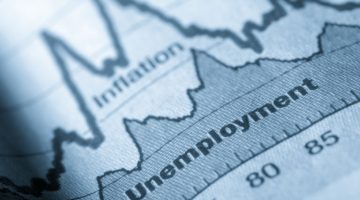 I’m sorry for the long absence from this column. I’ve been extremely busy dealing with the crisis in Haiti and here.
I’m sorry for the long absence from this column. I’ve been extremely busy dealing with the crisis in Haiti and here.
As co-chair of the Haiti Relief Effort, I’m coordinating the collection of money, food items, tents and water. I wish to thank each and everyone who donated money, food and medical equipment to the people of Haiti in their time of great need. Special thanks to President Obama, local and national media, and the religious and business communities for their generous support.
I’m asking you to afford the same urgent concern for the people of Chile who also need our support after the devastation caused by that country’s powerful earthquake. They urgently need your prayers.
Only hours after the earthquake hit Haiti in January, I was engaged with the media, relief organizations and area hospitals. We provided housing to U.S. citizens relocated from Haiti, grief counseling and supportive services to those whose family members were flown in for treatment, and we assisted those children who were passing through Miami and Fort Lauderdale airports to join their adoptive parents.
Surprisingly, an important service was to rush and bring sweaters upon request to these children who were just freezing cold once they arrive at our airports. They were not properly dressed to confront our unusually chilling weather.
In addition to helping here in the U.S., I traveled to Haiti via Miami Air when I found out that most people in the camps there were still waiting for relief. Close to 2 million are in need of emergency housing, food, potable water and health care. I visited camps in Port-au-Prince, Leogane, Mathieu and Darbonne. What you see on TV here – and the reality on the ground – are two different things.
The Camps. We called them “camps” for lack of a better word. Thousands of makeshift tents were covered for the most part by pieces of blankets or plastics, or pwela (thick pieces of a clothing material). The lucky and well-connected have beautiful tents with “Made in China” written on them. Even in the midst of the catastrophe of the century, the class divisions persist. Most of those interviewed complained that they have yet to receive any relief, confirming previous reports.
There have been a few distributions, but only the gwo bibit (the muscled ones) got food and water. The others returned to the camp bredouille (without anything). A sign on a wall says it all “Nou Bouke” (we are tired).
Women and girls at risk. In times of crisis, in times of war, women and girls fare worse. Even in these horrible times, reports of rapes of women and girls abound. Fathers and husbands sleep in shifts to protect their loved ones, but they must leave the camp to find food. The situation is still untenable.
Coordinating the help. The people of Haiti suffered unimaginable trauma. Most are still in shock. Adults and children alike are startled by even minimal levels of noise. The physical wounds will soon heal; the emotional scars will last forever. Despite the overwhelming challenges, Haitians have not lost their sense of brotherhood, their humanity. Whatever little food is available is shared among all in the camps. Relief organizations should build on these secular values and traditions to reach out to those in need.
Use the community organizations and women heads of households for the distribution. Everybody will benefit. The women are already doing this on their own. They are the surest guarantee that the aid will reach home. There is no reason to reinvent the wheel. I saw a strong sense of humanity in the camps. The women took charge naturally, cooking, feeding everybody. It was heartwarming to see this level of humanity in the midst of such desolation and despair.
The Rebuilding.This trip taught me that the Haitian people are ready and willing to serve! They’ve been left out of the equation for a long, long time! They came out of this crisis in a very strong way. Everywhere you turn, the Haitian people are present, digging with their bare hands, pulling people out….people they did not even know! Their love for complete strangers, their humanity, touched me deeply! They showed us that they can and they will rebuild Haiti if given the opportunity!
They will need our support in the Diaspora because we’ve acquired lots of skills and competencies while living abroad in addition to the support of other nations. We must involve the people of Haiti and Haitian-Americans in the Diaspora in the rebuilding process. Women in particular must take a strong leadership role there. Otherwise, we will be in the same predicament in the next 100 years!
Of course, the government of Haiti will need to develop a strategic plan, “un plan de societe” with all voices represented! Many doubt that they can do as much. But they must. They can!
More than ever, Haiti needs its friends. The rebuilding process will take years. Contribute to the Haiti Relief Fund Today!
Send a check to Haiti Relief c/o FANM, Inc. 181 N.E. 82 Street, Suite 101, Miami, Florida 33138. We are also looking for volunteers to pack all received goods bound for Haiti. Our number at FANM is 305-756-8050.
Marleine Bastien is the founder and executive director of Fanm Ayisyen Nan Miyami (FANM), or Haitian Women of Miami, Inc.
Marleine_Bastien@Hotmail.com












No Comment